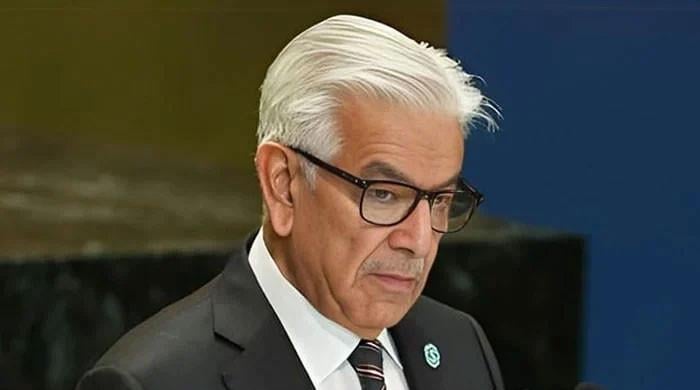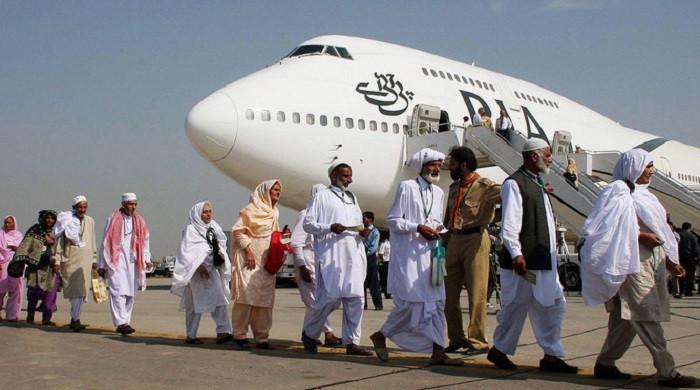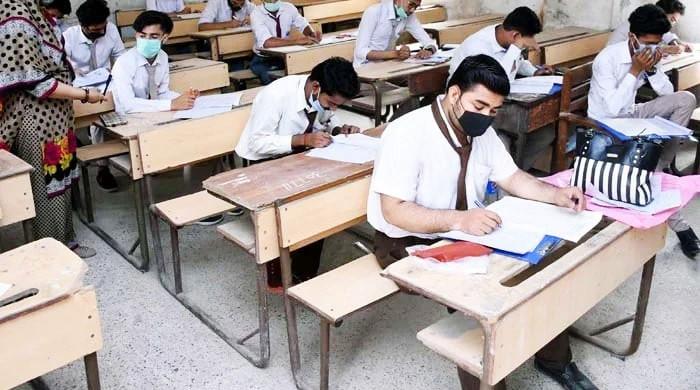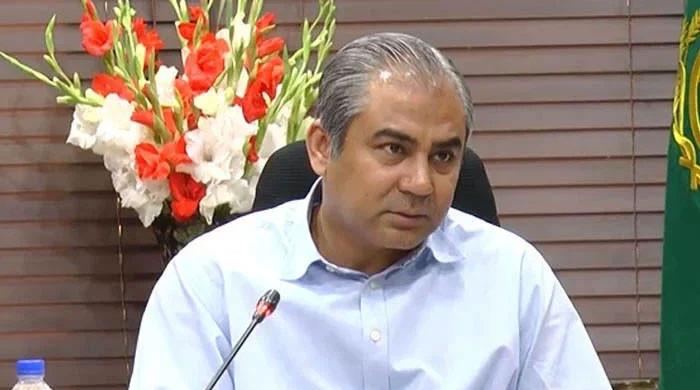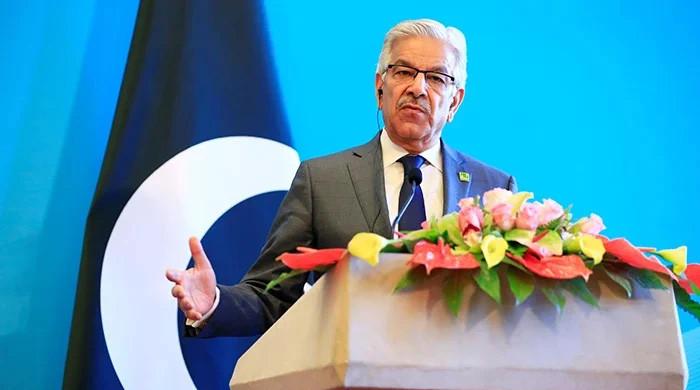After many twists and turns, Imran Khan finally out of Oxford chancellor's race
Nearly 40 contestants have been included in the coveted list without much-hyped former prime minister
October 16, 2024
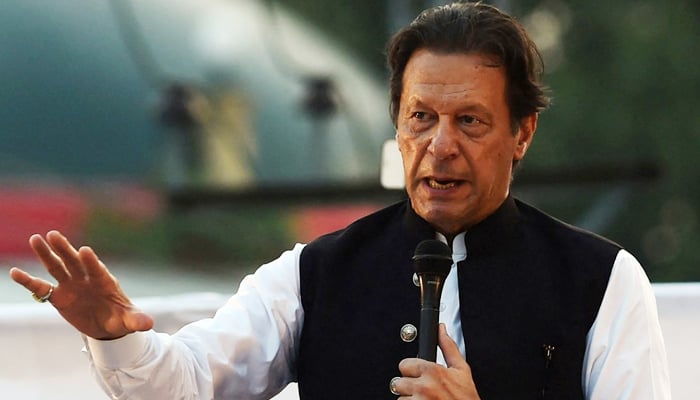
- Nearly 40 contestants have been included in list.
- Legal firm had also raised concerns over Khan.
- Chancellor's election will be held online: varsity.
LONDON: Oxford University has not included former Pakistani prime minister Imran Khan’s name in the list of candidates to run for the position of the varsity's chancellor.
A university source told Geo News, “More than 40 people applied and only 38 were approved. The candidates were only excluded according to the exclusion criteria of the university. 26,000 people have registered to vote in this election. Khan has been disqualified to run in the election over several factors including his conviction and political role.”
The prominent names wanting to become the next Chancellor were Lord William Hague, Lady Elish Angiolini, Lord Peter Mandelson, Khan, Dr Margaret Casely-Hayford and Dominic Grieve but only Khan has been disqualified from the top five well-known figures.
The source didn’t elaborate further but Geo News had reported exclusively on Tuesday that a King’s Counsel at UK’s leading law firm Matrix Chambers has opined that former prime minister Khan is not eligible for Oxford Chancellorship according to the university’s own regulations. Hugh Southey, King's Counsel at Matrix Chambers in London said: “In my opinion, Khan is unlikely to be eligible to be a candidate in light of one of his criminal convictions.”
Nearly 40 candidates have been included in the list as those candidates whose candidacy has been approved — and many names appear to be of Pakistani origin.
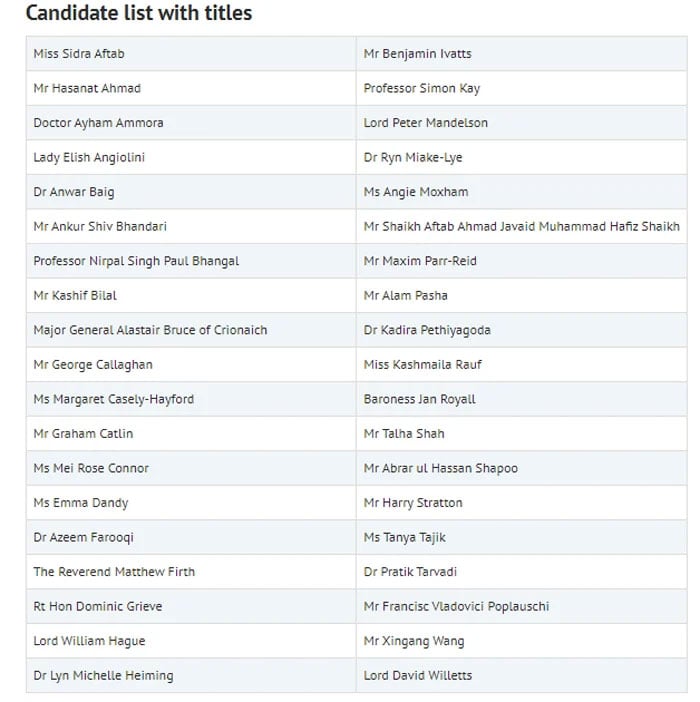
The university said: “In the first round of voting, voters will have the opportunity to rank as many candidates as they choose. The top 5 candidates will go on to a second round, to take place during the Week 6 of Michaelmas Term (week commencing 18 November).
The names finalised for the first round are: Miss Sidra Aftab, Benjamin Ivatts, Hasanat Ahmad, Professor Simon Kay, Doctor Ayham Ammora, Lord Peter Mandelson, Lady Elish Angiolini, Dr Ryn Miake-Lye, Dr Anwar Baig, Angie Moxham, Ankur Shiv Bhandari, Shaikh Aftab Ahmad Javaid, Muhammad Hafiz Shaikh, Professor Nirpal Singh, Paul Bhangal, Maxim Parr-Reid, Kashif Bilal, Alam Pasha, Major General Alastair Bruce of Crionaich, Dr Kadira Pethiyagoda, George Callaghan, Kashmaila Rauf, Margaret Casely-Hayford, Baroness Jan Royall, Graham Catlin, Talha Shah, Mei Rose Connor, Abrar ul Hassan Shapoo, Emma Dandy, Harry Stratton, Dr Azeem Farooqi, Tanya Tajik, The Reverend Matthew Firth, Dr Pratik Tarvadi, Rt Hon Dominic Grieve, Francisc Vladovici Poplauschi, Lord William Hague, Xingang Wang, Dr Lyn Michelle Heiming and Lord David Willetts.
The university further said: “Convocation will be asked to elect a new Chancellor in Michaelmas term. To make this election accessible to our global community of colleagues and alumni, the election will be held online. The first round of voting will take place during Week 3 of [the] Michaelmas Term [week commencing 28 October]. No further voter registrations are possible at this time.”
The statement added: “For the first time, an open application process was used to attract applicants from a wide range of backgrounds. The Chancellor’s Election Committee has considered all applications solely on the specific exclusion criteria set out in the university regulations.”
Policy advocacy group Beltway Grid said that it analysed the legal opinion by the King’s Counsel Hugh Southey of the Matrix Chambers about Oxford’s Chancellor elections.
Beltway Grid said that Hugh Southey’s statement has brought attention to the legal aspects of Khan’s candidacy, raising concerns about how the university might navigate its legal obligations. “Southey, a distinguished legal figure called to the bar in 1996 and awarded Silk in 2010, has a wealth of experience in high-profile cases, including those brought before the UK Supreme Court. His involvement underscores the importance of adhering to legal standards in this election.”
It said that Khan’s candidacy is being examined in light of Regulation 7(d) of Oxford’s Council Regulations 8 of 2002 and Section 178 of the Charities Act 2011. These regulations establish criteria for those serving as trustees, including requirements for honesty and transparency. Given his legal history, questions have arisen as to whether Khan meets these requirements. Specifically, this falls under the ‘fit and proper person’ test, a standard enforced by His Majesty’s Revenue and Customs to evaluate trustee suitability, may be another relevant factor. Legal experts are considering whether Khan’s candidacy aligns with the standards required for this prestigious role.
The statement stated: “Within the broader context of leadership suitability, the Beltway Grid endorses the view of the Southey that while ex-PM Khan does not hold any office in Pakistan, he is actively involved in the operations of his political party, the PTI. Additionally, he has clear and public intentions to contest for and take the office of the Prime Minister of Pakistan, should the opportunity present itself. The role of Oxford’s Chancellor requires an individual who can represent the university’s global interests, uphold its values and not clearly be intent on taking political office during their chancellorship. Additionally, the paper considers whether Khan’s background and stances in governance and international relations is aligned with Oxford’s values. The Beltway Grid Policy Centre team points to Oxford’s dire need to weigh legal compliance and ethical considerations in determining the next steps for the Chancellor election. According to King’s Counsel Hugh Southey, the regulations governing the position have a direct impact on Khan’s eligibility.”
Meanwhile, Oxford Alumni Pakistan announced their opposition to the use of Oxford's name for political gains.
The Oxford Alumni Community of Pakistan said in a statement: “Regarding the concerning media reports, we categorically deny any claim suggesting that as a forum, we support or oppose any specific candidate in the Chancellor Elections. We have not issued any statements endorsing any candidate. The statements circulating in the media are not representative of our collective voice and we emphasise that no such public endorsements or oppositions have been made concerning any candidate.
“The Oxford Alumni Community of Pakistan comprises individuals from diverse backgrounds and political ideologies. The decision to vote in the Chancellor Elections is a matter for Oxford's current students, registered and eligible alumni and faculty members, and falls beyond the scope of the National Dialogue team and its mission. As proud alumni of this esteemed institution, we believe that the university remains a place where intellectual rigour and values prosper and we want to infuse that into Pakistan. We have confidence that the University of Oxford will manage the Chancellor Election process with fairness, independence, integrity and in adherence to its guiding principles.”
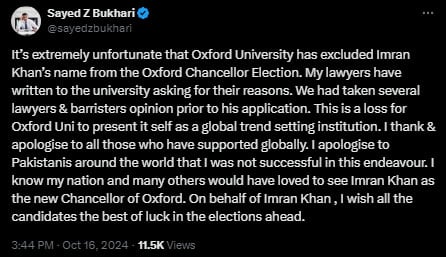
While reacting on the development Khan’s international adviser Zulfi Bukhari took to social media platform X, terming the varsity's decision to exclude the former PM's name from the Oxford Chancellor election "extremely unfortunate".
"My lawyers have written to the university asking for their reasons. We had taken several lawyers & barristers' opinion prior to his application," said Bukhari as he termed the development a loss for Oxford University to present itself as a global trend-setting institution.
"I apologise to Pakistanis around the world that I was not successful in this endeavour. I know my nation and many others would have loved to see Imran Khan as the new Chancellor of Oxford," he added.
A day earlier, Bukhari told Geo News that Khan generated much interest and brought attention to the Oxford University and added to its global fame. He said that it wouldn’t matter if Khan couldn’t disqualify. “We were able to bring focus to the plight of Khan through our campaign.”
Bukhari confirmed that he had hired three firms for political lobbying, publicity and legal support for Khan. He confirmed that he had used these firms to generate interest in Khan for the Oxford race.




